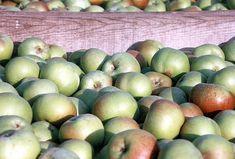
SmartFresh developers have hit back at claims that the fruit preserving technology is to blame for the worsening oversupply situation in the apple industry.
In FPJ last week, Karl Schmitz of BVEO in Germany claimed SmartFresh was contributing to the coincidence of old and new season produce on supermarket shelves, which was detrimental to the entire industry, as well as customer satisfaction. And Tim Lang, professor of food policy at London’s City University has since labelled SmartFresh a “brilliant but surreal use of science” being used to “play around with the seasons.”
The UK media has reported that apples are being sold as fresh, having been picked up to a year previously. But Peter Vriends, European general manager of Agrofresh, which developed the technology, said SmartFresh cannot be held solely responsible for the overlapping of seasons. He claimed that SmartFresh has only recently been introduced in Europe, so its impact on the industry has been minimal to date.
“China has a lot of apples to send to Europe, Poland is sending a lot more. The dynamics of the world market are changing but that is the way it goes. It is too easy to blame SmartFresh,” he said. CA storage has been around for 30 years and SmartFresh is not dramatically extending the storage life of apples beyond previous levels, he added.
Adrian Barlow of English Apples & Pears agreed its effect had been small so far, owing to its restricted compatibility with a significant number of apple varieties.
He said: “There has been an overhang of southern hemisphere Braeburn on the continent this year which has caused a problem in the market but probably only a small proportion would have been SmartFresh-ed. Braeburn is one of several varieties on which SmartFresh is not recommended.”
However, Barlow emphasised that the two seasons - the northern and southern hemisphere crops - were distinct, which was well recognised by supermarkets. “The multiples have been very keen to ensure there is a clean break between the two seasons so that the apples are fresh in each period,” he claimed.
Sainsbury’s came under fire from some national newspapers for actively acknowledging use of the technology. A spokeswoman for the chain said she was disappointed that other retailers had not had the courage to do the same.
She also claimed growers were entirely responsible for choosing whether or not to use SmartFresh. The spokeswoman said: “Apples using the SmartFresh process are sold in most retail outlets - supermarkets, greengrocers.
“Apples have always been laid down in chilled environments to preserve their quality and taste. SmartFresh enhances that process and is used by apple growers who supply the whole of the retail industry.”
Critics of the technology have questioned the need for prolonged storage. Barlow said such thinking was testament to widespread ignorance about the procurement of food: “What is fresh? There is no conning going on here and no information is being withheld from the consumer,” he said.



